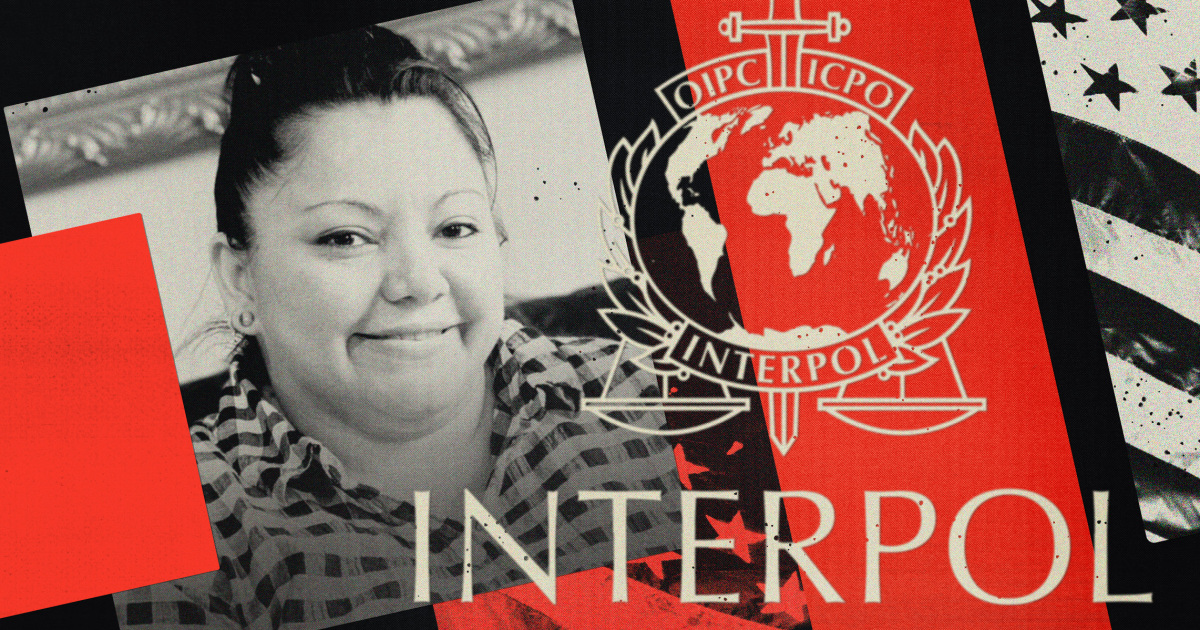A group of pregnant women wait to receive a prenatal examination, at the National Hospital for Women, in San Salvador.Salvador Melendez (AP)
EL PAÍS offers the América Futura section open for its daily and global informative contribution on sustainable development.
If you want to support our journalism, subscribe
here
.
Dr. Sandra Carolina Mena Ugarte (San Salvador, 45 years old) would have preferred not to be a pioneer in her medical research.
In February, she published a gynecological and obstetric study that shows how the risks of maternal morbidity increase as a consequence of the absolute criminalization of abortion in her country, El Salvador.
Specifically, she studied what happens to women who are forced to carry pregnancies to term in which any of the 18 congenital diseases incompatible with life have been detected.
“It has not been investigated before because in other countries no one forces anencephalic pregnancies to term,” she explains behind a mask at her private clinic in the capital.
The results are alarming: "Women who entered healthy are getting sick, and they would continue to be so if they were allowed to opt for therapeutic abortion."
Anencephaly (when a fetus develops without a skull or brain) is a condition suspected in the eighth week of gestation and confirmed in the eleventh;
with just three months.
However, since in El Salvador abortion is a crime in any circumstance, women continue to gestate for another six months, hoping for a miracle.
In the Central American country, this medical service is punishable by up to 12 years in prison, both for the patient and for the doctor who performs or recommends it.
However, they can also be sentenced for aggravated homicide, a criminal offense that reaches up to 50 years in prison.
So a Salvadoran woman whose fetus is diagnosed with a non-viable pathology outside the womb only has two options: give birth and bury it or risk ending up in jail.
According to the study, co-authored by María Virginia Rodríguez Funes and Jocelyn Viterna, more than half of the pregnant women analyzed (54.9%) experienced at least one serious health complication related to the pregnancy, while 47.9% of the women underwent a physically invasive medical procedure to manage complications, including cesarean deliveries, decompression amniocentesis, fetal head decompression, and, in one of 239 cases studied between 2013 and 2018, a complete hysterectomy (removing the uterus ).
“Continuing with a risky or non-viable pregnancy, unless it is by the will of the mother, borders on iatrogenic [a damage to health caused by a doctor or medication].
In El Salvador it is pro-partum, not pro-life”.
With the term pro-life, the former coordinator of the Malformations Committee of the Ministry of Health refers to a religious and ultra-conservative movement, very strong in the Central American country, which is making it difficult to advance in the fight for women's sexual and reproductive rights.
It is normal to see these groups go to pray in front of the headquarters of feminist organizations or harass women who defend their right to decide.
Just a month ago, they did it again.
On March 22, the historic hearing of Beatriz vs. El Salvador was held at the Inter-American Court of Human Rights to assess the consequences of anti-abortion legislation, the most restrictive in the Americas.
When Beatriz, the young woman whose case inspired the lawsuit in the Inter-American Court, went to undergo a cesarean section to extract a fetus that was known to arrive without a skull or brain, this group sent her a crib and woolen hats to the hospital.
“It is curious that they put an asterisk on that maxim of protecting life when it comes to the woman and not the fetus.
With this policy and all the harassment, women stop going to the consultation.
They look for solutions outside”.
This reality is also reflected in the analysis.
One in ten patients discontinued medical care after receiving a diagnosis of fatal fetal malformation.
This, according to the country's feminist organizations, is usually an indicator that they seek to end the pregnancy in a clandestine and, therefore, unsafe manner.
And when she is not the one who abandons the health system, it is the system that abandons her.
“There is a very perverse belief of doctors that, when they go to attend a birth like this, they force it to be vaginal because it does not warrant a cesarean section.
They say: 'Overall, if he's going to die'.
So, on the one hand, you force them to give birth and on the other, you end up receiving decapitated babies during the birth process, ”she explains.
“Until the law changes, it should at least be central that these women are closely watched, because they are at risk.”
paternalistic medicine
For Dr. Mena, what is "truly cruel" about the criminalization of abortion in these cases is not so much the prohibition itself as the irrelevance that the State gives to the will of the woman, or what she calls "paternalistic" medicine. .
“There are mothers who have tried hard to have a child and, even though they know they are going to die at birth, they want to extend their motherhood as long as possible.
Our job is then to keep a rigorous follow-up with her and with her fetus so that it suffers as little as possible.
But for many other women, this is an absolute aberration, ”she says.
“In my country, the reality is that.
The law does not ask them: what do you want?
Another of the great ironies of El Salvador's position regarding the sexual and reproductive rights of women is the very perception of life.
The anti-abortion law is based on the fact that the Constitution has established since 1998 that life begins at conception.
Thus, any interruption of the pregnancy will always be considered as murder.
However, El Salvador does allow
in vitro
fertilization , a reproduction process that costs around 8,000 dollars and that entails the
death
of between six and nine embryos for each child born.
“The difference between one and the other is money.
Who accesses in vitro
treatments
?
Who can afford it;
Those women will never go to jail.
But the legislation affects, as always, poor women”, settles Mena, who clarifies not being against the treatment, but the “inconsistency” of the regulations.
"El Salvador thinks it's okay to disrespect the Constitution to meet the wishes of healthy women who want to get pregnant, but not when they are incompatible children, women at risk of life and raped women."

/cloudfront-eu-central-1.images.arcpublishing.com/prisa/SIVE6SI4WRGWJJWCSTP7CQV5R4.jpg)






/cloudfront-eu-central-1.images.arcpublishing.com/prisa/AYBDQARVBB2WDG6IFPXHYFIMBM.jpg)






/cloudfront-eu-central-1.images.arcpublishing.com/prisa/GP2ZXWJRROQQUNBAGJPH3WIOVQ.jpg)